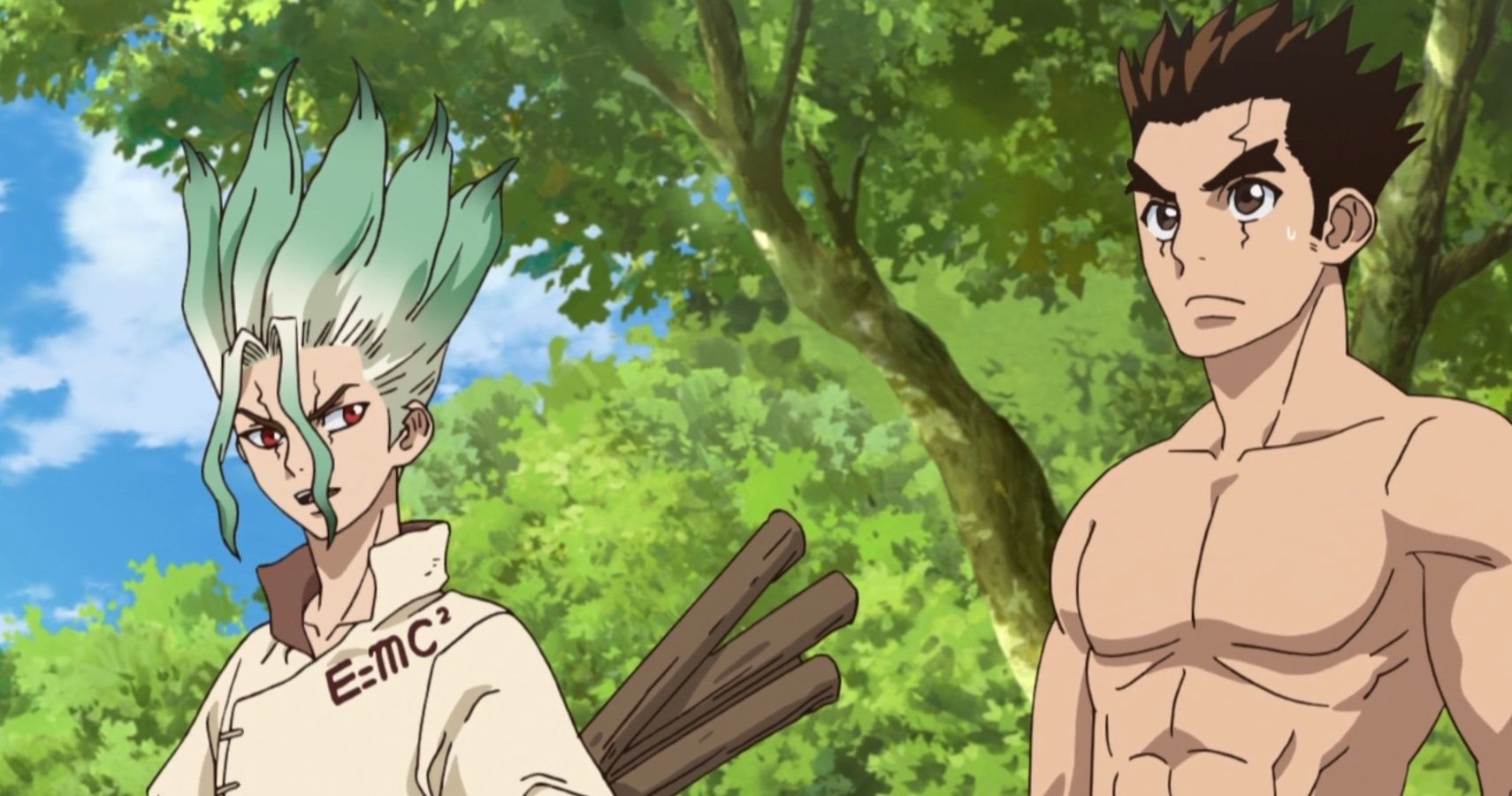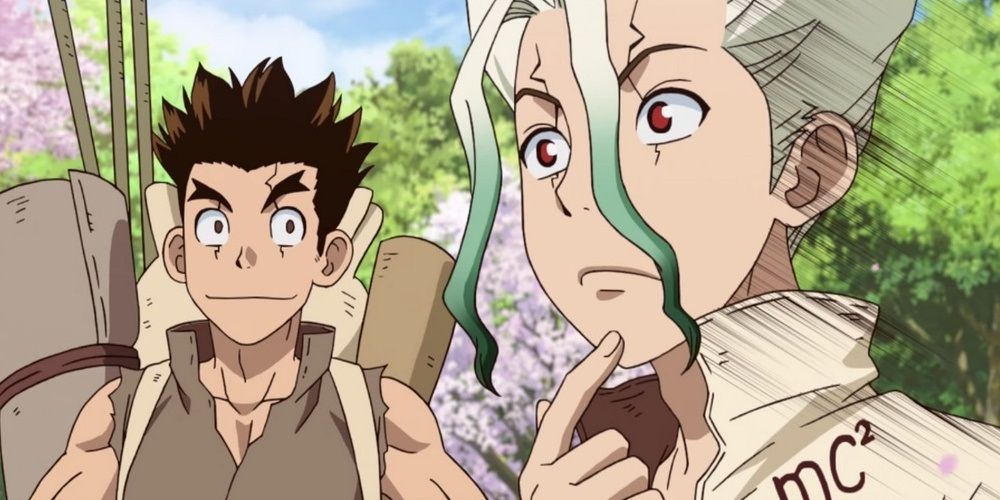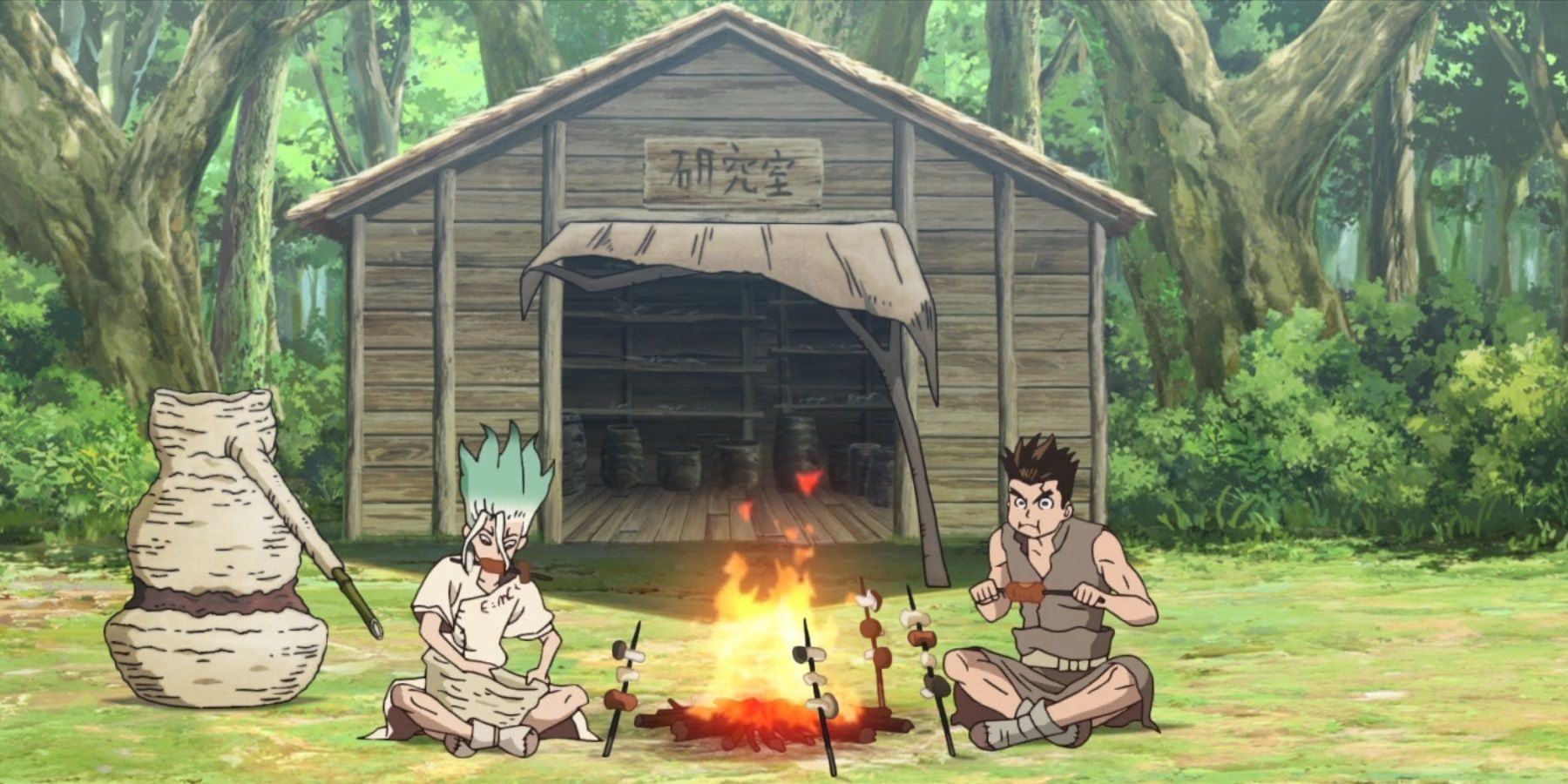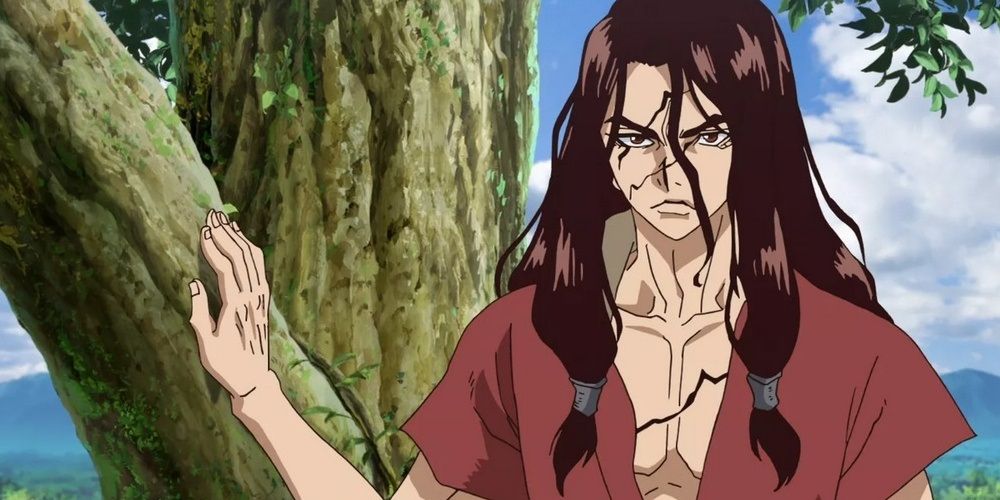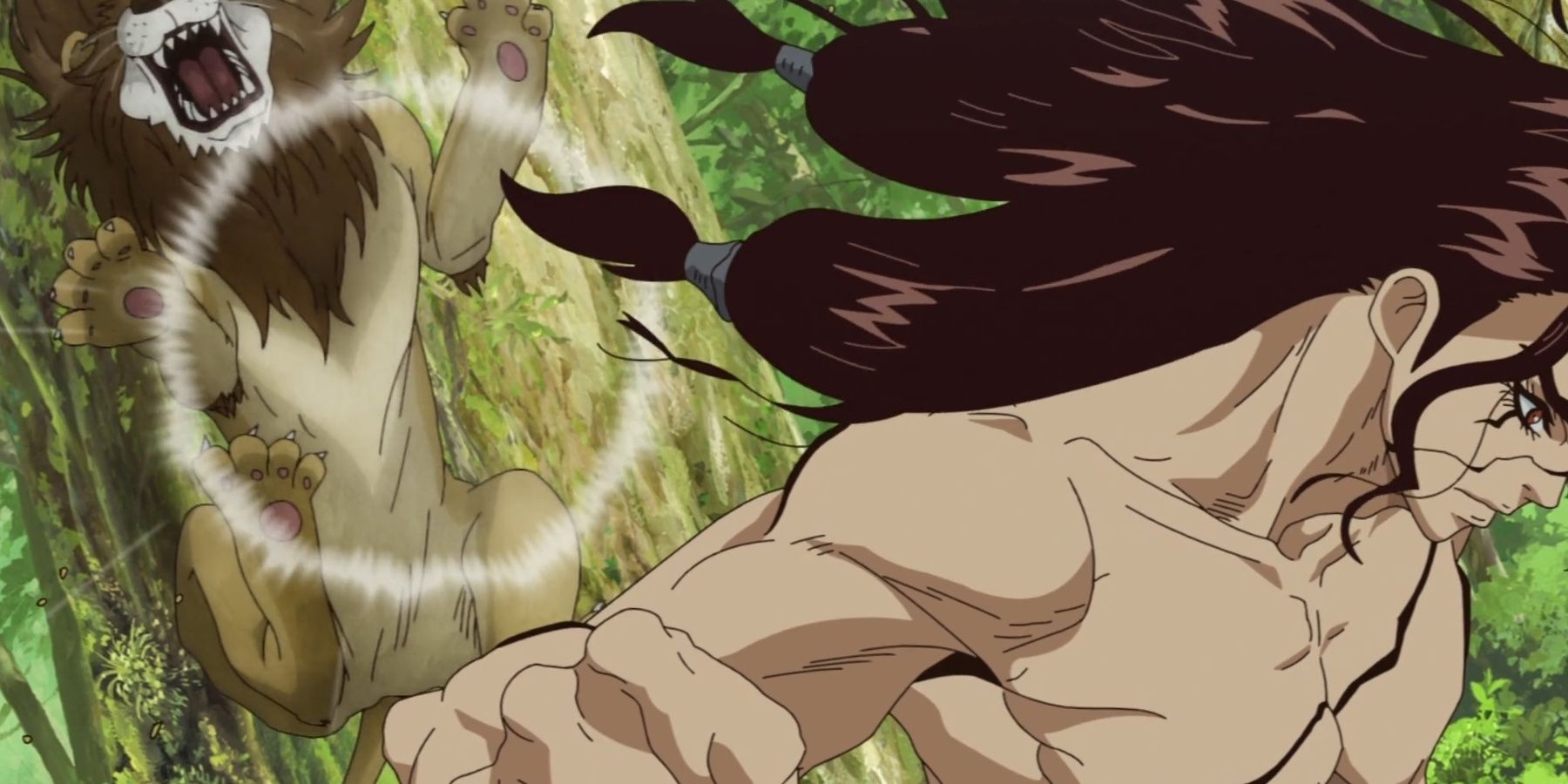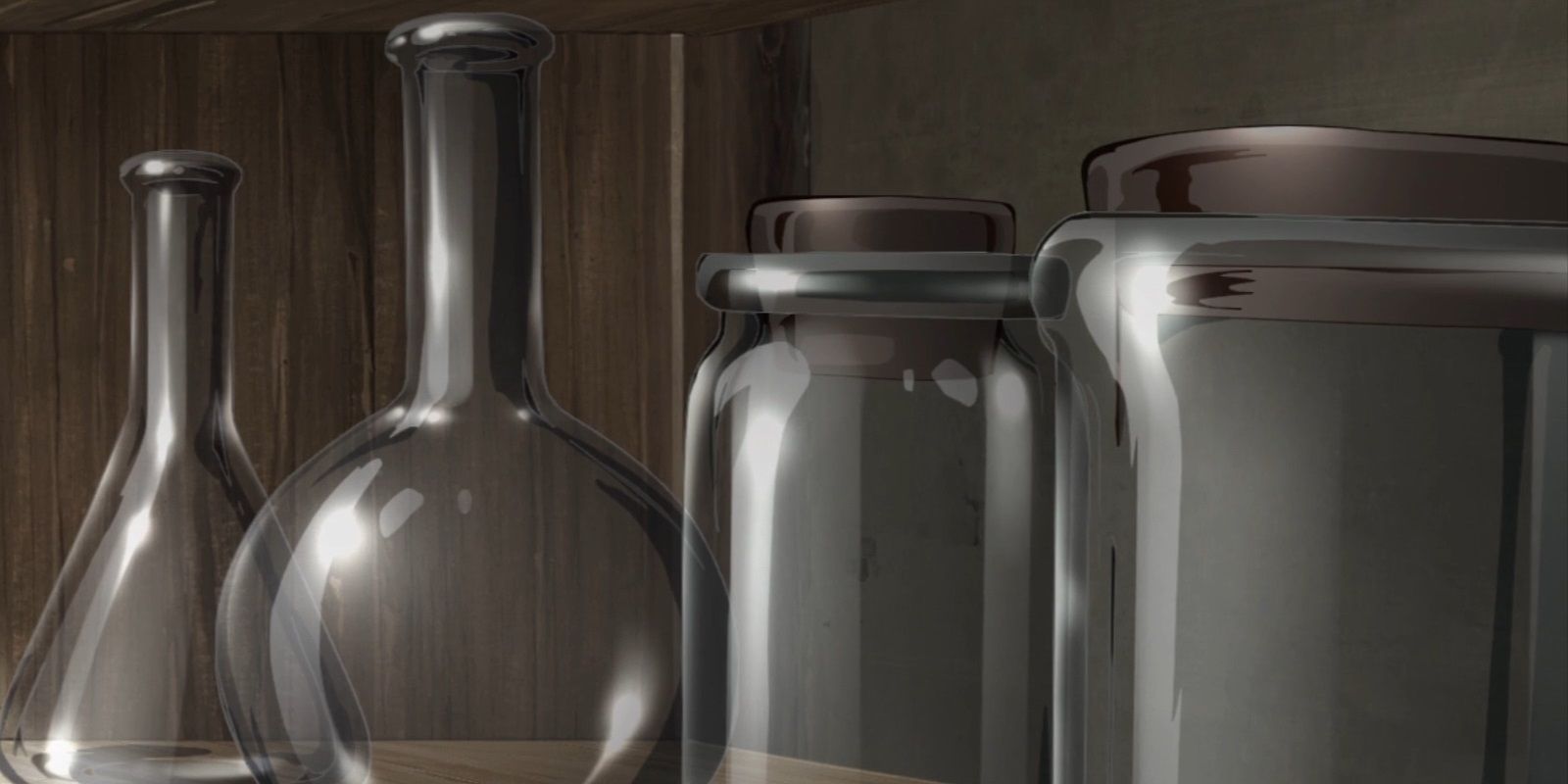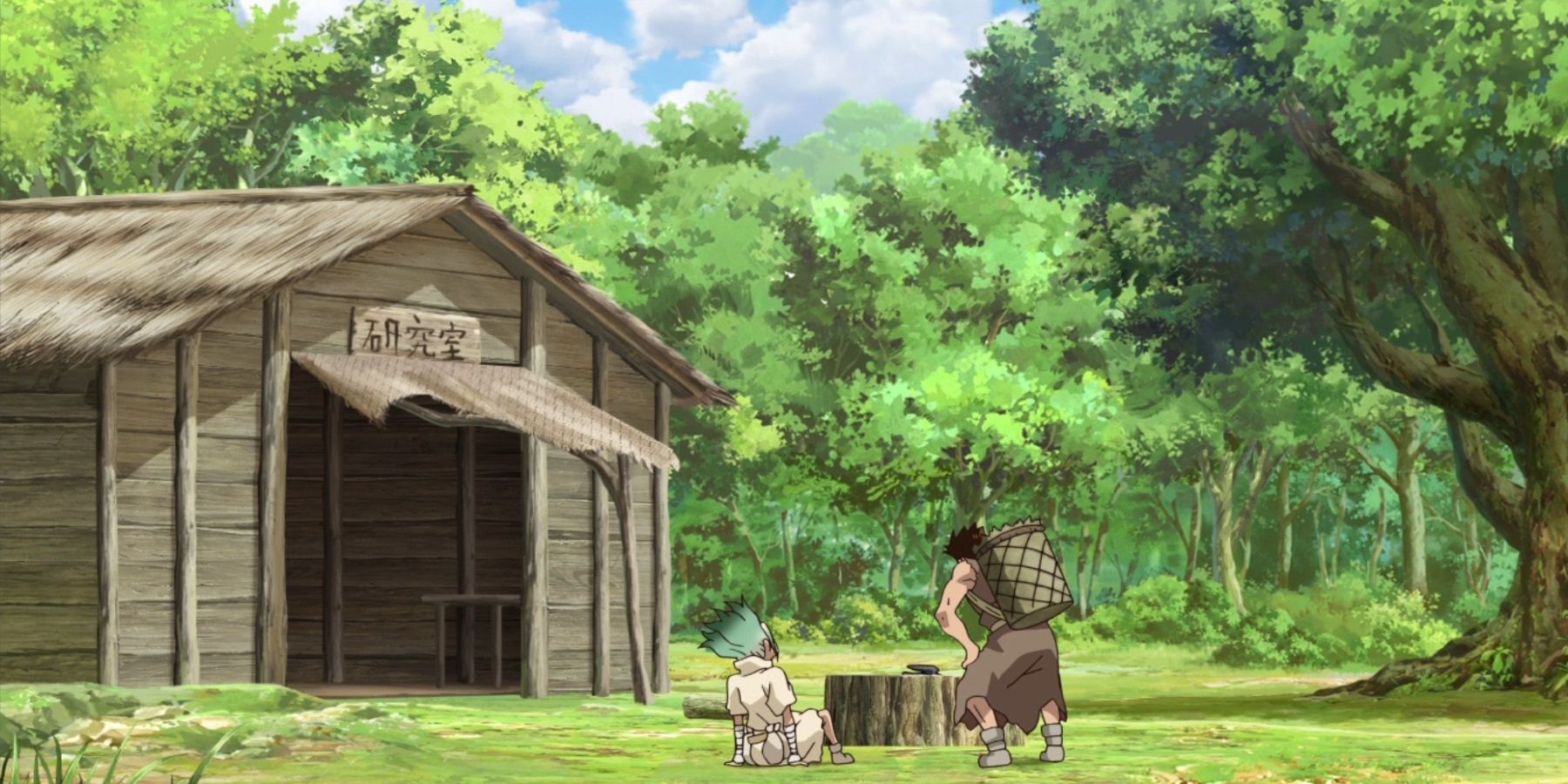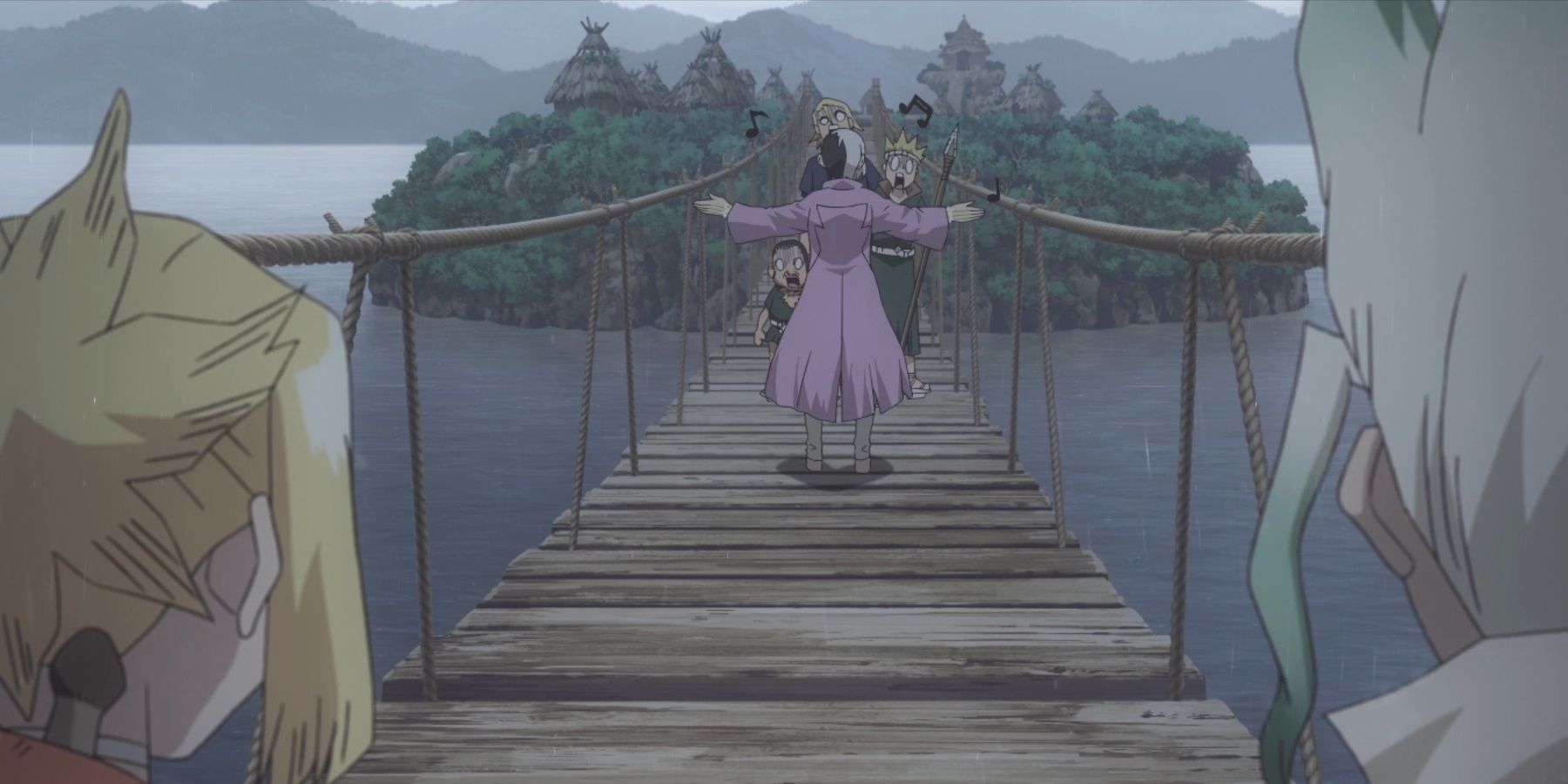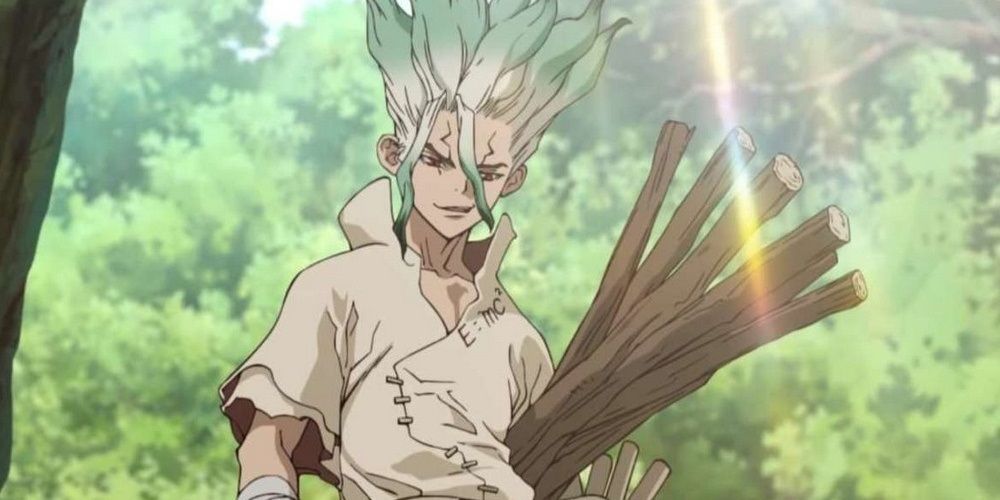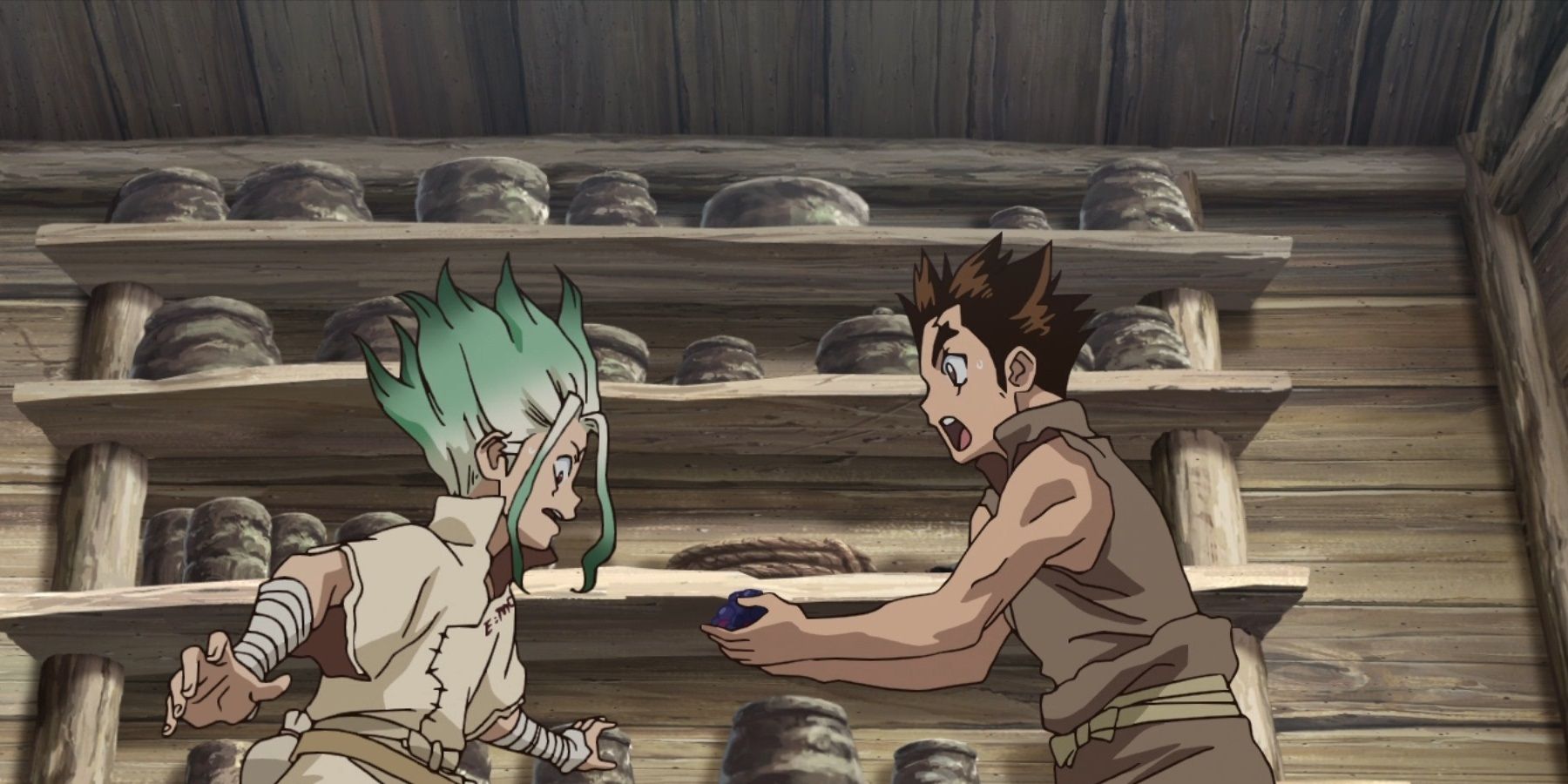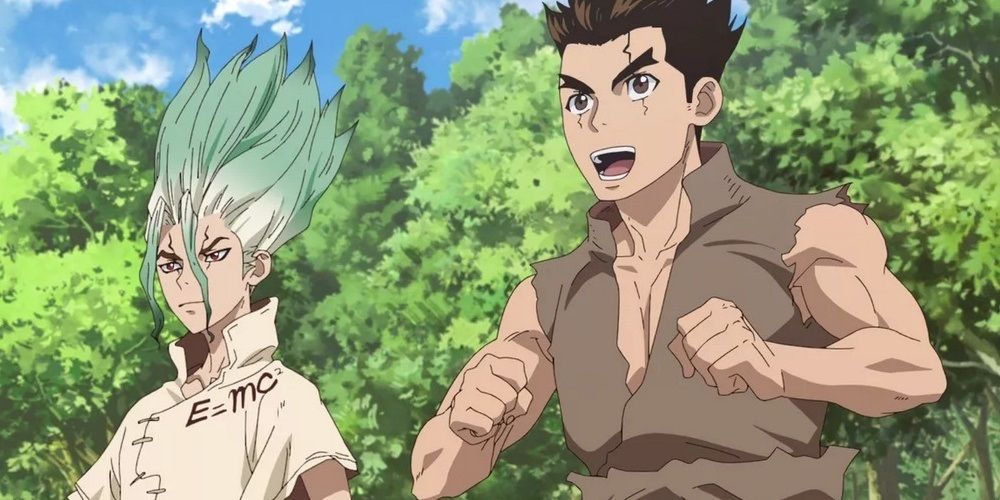Dr. Stone is a rising star in the anime world, and this creative new series poses the question: what if an energy wave turned every human being to stone, and the world moved on? Fast forward 3,700 years and the brilliant high schooler Senku breaks free of his petrified prison. At once, he sets out to bring back civilization and technology through the power of science, and he has friends to help out.
But along the way on this noble quest, survival comes first. Even if you're not a science wunderkind like Senku, some basic survival skills simply must be learned and put to good use. While building the Kingdom of Science, what are some 10 essential survival strategies to follow?
10 Know your plants
This is an even bigger deal than it sounds like. A survivor may face danger not only from a cougar or a wolf but from eating the wrong berries or mushrooms (which are fungi, to be technical about it). The wrong plants or fungi may at the very least cause an upset stomach or cause cramps, and at worst, they might kill you dead.
Our ancient, primitive ancestors soon learned to tell edible berries and fruits apart from toxic or deadly ones, and this is a skill to learn all over again in the new Stone Age.
9 Make fire
This is truly what first set man apart from animal. Fire is a significant force to control since it can serve so many purposes. It provides light and warmth at night and during winter, and it can scare off predators who naturally fear flames and heat. And in ancient times, cooked meat was easier for our caveman ancestors to eat, which unlocked more proteins an allowed their brains to grow.
Now, Senku and friends need fire not just to cook food, but boil water and make tools, among other uses. Just don't cause a wildfire while you're at it. The ghost of Smoky the Bear can see you!
8 Hunting
Unless you're a dedicated vegetarian, you're going to go hunting. But human beings don't hunt with venom or claws; we wield weapons, often fire-hardened spears and bows and arrows in this new Stone Age.
Tsukasa may be an exception, beating lions to death with his bare hands, but overall, weapons are preferred. Animal meat has a lot of nutrients and energy in it, which often makes it worth the effort to obtain. Hunt rabbits, deer, wild boar, or even squirrels if you like.
7 Self-defense
This might come into play if wild animals encroach on your camp, and the fire isn't scaring them off. With the right weapons, shouts, and posturing, it may be surprisingly easy to discourage an attack. Predators don't actually look for a fight since there are certainly no hospitals in the wild.
And self-defense can also help against other people, such as dishonest bandits or raiders who would rather pilfer food and supplies from your camp than find their own. Or even defend yourself from members of an unfriendly tribe.
6 Boiling water
"Fresh" water is found in streams and creeks, and it is not salty like the ocean's water is. Still, don't drink the water too casually! It may be loaded with bacteria, viruses, and microscopic parasites that can kill. Instead, Senku and friends can boil water in containers and catch the water vapor in another container.
The impurities are left behind, and any harmful microorganisms in the water are definitely dead from the heat. Clean water is worth its weight in gold.
5 Build shelter, fast
Even wild animals know the value of shelter. Gorillas make large nests, most birds make nests of their own, and other animals may dig a hole or crawl under a log or into a cave to hide. This can keep snow, rain, sun, and the wind away, and death from exposure is always a threat.
But human beings in the new Stone Age can take further since they have the brains to build a proper structure. A few houses and warehouses offer enough room for many people and supplies alike. And that makes your camp easier to find when you're coming back from hunting.
4 Diplomacy
Not everything should be settled with a fight. In fact, in the new Stone Age, fighting is a pretty bad idea. Medicine is limited, and a wound can get infected and spell doom. Rather, different parties or survivalists or tribesmen may want to settle things with words.
In this way, boundaries for hunting grounds or campfire zones can be established, and groups can arrange for trades and exchanging favors with each other. Play nice, and you might live a long life out there.
3 Make a mental map
Are you lost? Better hope not. A survivalist will create a mental map of the terrain as they go, and it helps to use landmarks to know where certain areas are in relation to each other.
Google Maps is a thing of the past, so try identifying an area with hills, lightning-struck trees, a boulder, a creek, or anything else that stands out. In this way, you can find your campsite again, or find good berry patches or hunting grounds and visit many times.
2 Storage solutions
This topic has been interwoven into the others, and for good reason: it's indispensable! A group of survivalists in the new Stone Age can and should gather a lot of food and materials, and they need somewhere to put all that.
Clay pots are a fine start, and they can hold plants, mushrooms, powders, medicine, liquids, and more. For more acidic or advanced medicine or chemicals, learn from Senku, who invented glass all over again. With it, he's got a proper medical clinic on his hands.
1 First aid
All the world's hospitals crumbled ages ago, so now medicine is a DIY project. A good camp will have herbs and other ingredients to make basic medicine, and survivalists can also use leaves and twigs to make bandages, splints, and more.
Not to mention skills such as setting a broken bone so that it can heal. That may hurt, but a broken bone is a serious injury, so set them carefully. A dislocated joint needs to be popped back into place, too.

